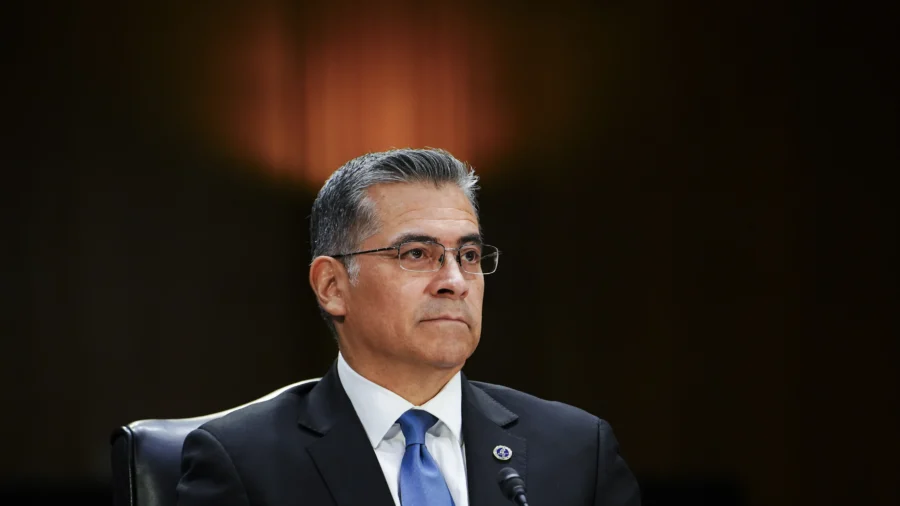A district judge has granted Texas and Montana’s request for a preliminary injunction against the federal government’s attempt “to impose a sweeping new social policy” that allows for Title IX coverage for gender identity.
The ruling follows others in which federal judges have brought Title IX revisions to a halt.
In this most recent decision, Texas District Judge Jeremy Kernodle ruled that the Department of Health and Human Services (HHS) can’t force state health care providers to fund gender-affirming care by threatening them with the loss of federal funding.
In May 2024, HHS issued a press release on its Final Rule, which expanded the definition of Title IX protections in 2016 to include “discrimination based on the basis of gender identity” to fit in with Section 1557 of the Affordable Care Act (ACA). Title IX was initially established in 1972 to protect women from discrimination in public education.
“When Congress enacted the ACA in 2010, no agency—or court—had ever interpreted ‘on the basis of sex’ to mean ‘on the basis of gender identity,’” Judge Kernodle wrote. “But in 2016, HHS began to do so, issuing a rule purporting to implement Section 1557 and prohibiting discrimination on the basis of ‘gender identity.’”
Texas and Montana, two states that exclude gender-affirming care procedures from their Medicaid programs and prohibit doctors from performing them on minors, sued HHS, arguing that the federal health department has no authority to mandate that the states adhere to these revisions.
HHS said in its press release that the regulations were updated to prevent “dehumanizing beliefs” surrounding medical treatments and conditions such as gender dysphoria.
“The Department will approach gender dysphoria as it would any other disorder or condition,” HHS said in its Final Rule. “If a disorder or condition affects one or more body systems, it may be considered a physical or mental impairment.”
HHS Secretary Xavier Becerra said the Final Rule’s intent is to “strengthen protections” and ensure “equal access to this nation’s health care system and its social service programs for people with disabilities and their families.”
“It is comprehensive in scope, advancing justice for people with disabilities and helping to ensure they are not discriminated against under any program or activity receiving funding from HHS just because they have a disability,” Mr. Becerra said.
Judge Kernodle wrote in his order that the Final Rule proposes an “absurd” policy in that health care entities are prohibited from limiting services exclusive to one sex, such as providing a prostate exam.
The Final Rule would also allow men who identify as females to be allowed in “female-exclusive facilities, including shared hospital rooms.”
The Final Rule also affects health insurance coverage like Medicaid and the Children’s Health Insurance Program, Judge Kernodle wrote.
“As applied to state-sponsored insurance plans like Medicaid and CHIP [Children’s Health Insurance Program], the Final Rule has the effect of requiring states to pay for ‘transition’ and other ‘gender-affirming’ procedures,” he said.
As in other rulings on this issue, the primary reason for Judge Kernodle’s decision was that the states demonstrated that they would face irreparable financial harm by failing to comply with HHS’s rule.
Both states receive billions in federal funding, he wrote, which would “likely be withheld for violating the Final Rule,” he wrote.
“The loss of such funding for Medicaid and CHIP would devastate these programs and their beneficiaries,” he said.
Other Rulings
On July 3, Mississippi District Judge Louis Guirola also ruled that HHS couldn’t enforce its reinterpretation of Title IX protections to include gender identity.
Plaintiffs in up to 15 states, including Tennessee, Alabama, Georgia, Indiana, Louisiana, and Mississippi, filed the complaint in the U.S. District Court in the Southern District of Mississippi.
Judge Gurioloa said the plaintiffs have proven that they would “incur substantial costs” if they didn’t comply with the Final Rule by losing federal funding, which was the deciding factor in his order.
“As a result, the Court finds that Plaintiffs have established all four elements for imposing a preliminary injunction and stay,” he wrote.
Other rulings include Kansas v. U.S. Department of Education, in which a federal judge ruled the Department of Education couldn’t impose its redefinition of sex to include gender identity and sexual orientation.
The Human Rights Campaign (HRC)—an LGBT advocacy organization—issued a press release criticizing the ruling.
“This ruling is not only morally wrong, it’s also bad policy,“ HRC Director Kelly Robinson said.
“Everyone deserves access to the medical care they need to be healthy and thrive.”
“This isn’t over,” she added. “All LGBTQ+ people should receive the health care they deserve and be able to make informed decisions about our own bodies.”
The Epoch Times contacted the HRC and HHS for comment on this new ruling.
From The Epoch Times

